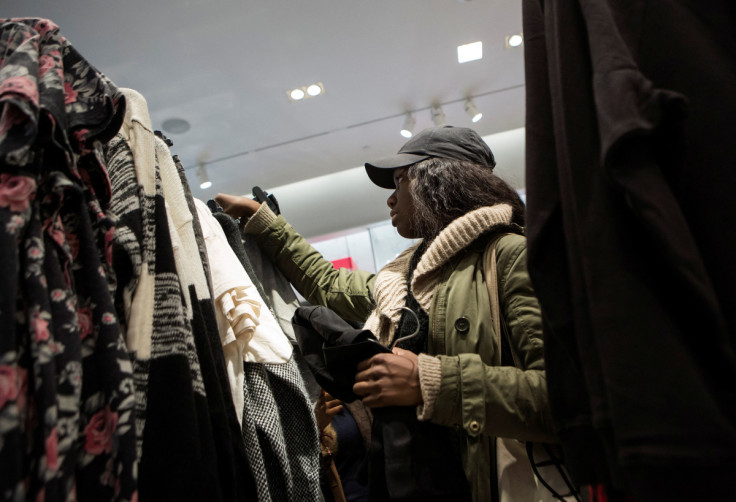H&M launches U.S. resale program
Fast-fashion retailer H&M launched a resale program Tuesday in collaboration with ThredUp, an online consignment platform that has partnered with dozens of brands to run their used clothing sales, H&M told Reuters.

Fast-fashion retailer H&M launched a resale program Tuesday in collaboration with ThredUp, an online consignment platform that has partnered with dozens of brands to run their used clothing sales, H&M told Reuters.
H&M will be the largest retailer to work with ThredUp, and the partnership will mark the retailer's first resale marketplace in the United States, according to Abigail Kammerzell, head of sustainability for H&M North America.
"We've been working in secondhand since about 2015, really testing and learning," she said. "And what we know is we need to make it easier to adopt. We need to make it user-friendly and we need to make it easy to access."
Roughly 30,000 articles of clothing will initially be available on H&M's resale site. ThredUp is responsible for powering the site and restocking it with H&M pieces sent in by users.
Other clothing retailers, including Inditex's Zara and online fashion retailer SHEIN, have also launched resale marketplaces as shoppers express growing interest in sustainability initiatives. Brokerage Morningstar has estimated that the resale market could grow to $300 billion by 2031.
Kammerzell said H&M viewed resale as part of its wider push toward sustainable practices, which has also included launching a denim collection made with recycled materials and a program that offers coupons to customers who bring in clothing for recycling.
The company has previously been criticized for marketing its clothing as more eco-friendly than it actually is, with a 2022 lawsuit accused H&M of 'greenwashing' for displaying sustainability scores that falsified information on how the clothing was manufactured.
An H&M spokesperson said the company is continuing to investigate "irregularities" in the scores and removed them from its website after the coalition that developed the scoring metric paused its use.
Some critics say that efforts by H&M and other large retailers to enter the resale market are undercut by the volume of clothing they produce.
Lucy Dunne, a professor at the University of Minnesota, said fashion sustainability should include efforts to cut back on production and consumption along with other initiatives. "If they're not actually producing less, that is not helping anybody," she said.
H&M does not currently plan to slow its clothing launches or reduce the overall number of items it sells, according to Kammerzell.
"We are in a business that produces things, so it's not really about our volume of production," she said. "It's about how you're designing and producing for circularity."

Copyright Thomson Reuters. All rights reserved.




















